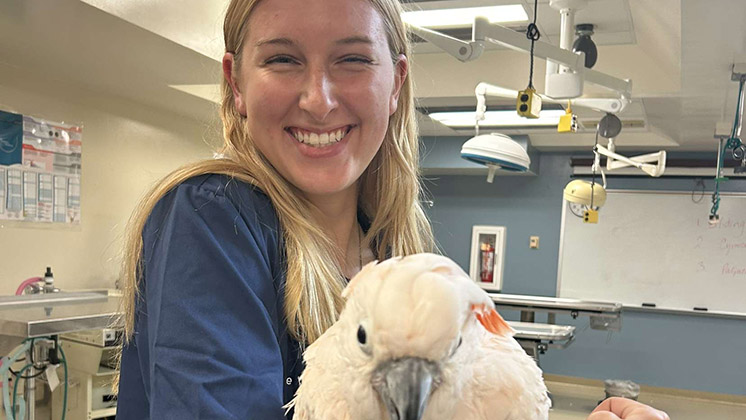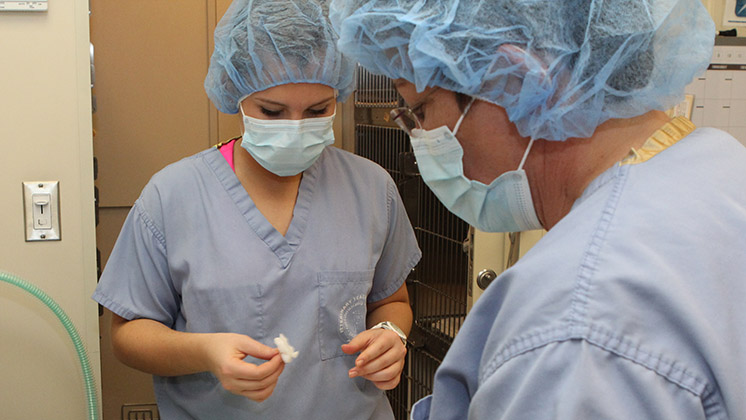
by Kelsey Wirt, MS, LVT and Josh L. Clark, MS, RVT
There are two common educational pathways you can follow when pursuing a career as a veterinary technician (vet tech):
A bachelor's degree program offers a more comprehensive education, with a broader range of classes and more in-depth exploration of certain topics. Depending on the program, you may be able to focus on specific areas of interest such as practice management, emergency and critical care, anthrozoology, and more. This increased knowledge and skill level can make you more confident and competent in your role as a vet tech.
While an associate's degree can lead to entry-level vet tech positions in a veterinary clinic, a bachelor's degree may open up more career opportunities within or outside a clinical setting. These could include management roles, teaching positions, or specialized areas of veterinary technology, such as research or veterinary pharmaceutical sales. While it is not guaranteed that you will earn a higher salary with a bachelor’s degree, these additional career opportunities often come with higher earning potential.
If you're considering further education down the line, such as a master's degree, a bachelor's degree in veterinary technology can provide a solid foundation.
Bachelor's degree programs often include courses in leadership, communication, and management. These skills can be beneficial if you aspire to take on a supervisory role within a veterinary practice or another animal healthcare setting.
Colleges that offer bachelor’s degrees typically also offer master’s and PhD degrees. This allows for more opportunities to gain experience working on research projects. If you're interested in working in a research setting, this project experience, combined with a bachelor's degree, can set you apart from other candidates for future jobs.
While an associate's degree in veterinary technology can lead to a rewarding career as a vet tech or vet nurse, obtaining a bachelor's degree can offer additional benefits. These include more extensive knowledge and skills, increased career and earning potential, a foundation for further education, leadership training, and research opportunities. As with any educational decision, it's essential to consider your personal career goals, financial situation, and time commitment.
Find your calling as a Purdue Veterinary Nurse!
Not quite ready to apply? Connect with us to learn more.

Explore vet tech job opportunities with ease: online job boards, professional associations, social media, local clinics, and networking - essential tools for every aspiring vet tech.
Read more
Learn whether a vet tech degree can serve as valuable experience for aspiring veterinarians.
Read more
FAFSA can help pay for vet tech school by offering federal grants, work-study opportunities, and low-interest loans to eligible students.
Read more